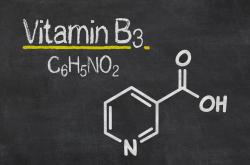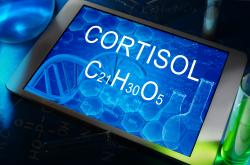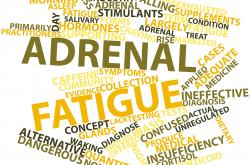Are Thyroid Disorders Causing Your Fatigue?
If you’re been led to believe that your adrenals are the only thing that can cause severe ongoing fatigue, think again. The fact is that you may be suffering from hypothyroidism – one of the more common thyroid disorders in the world today.
In today’s busy world, more and more people are suffering from the affects of one form of fatigue or another. Many are so exhausted that they develop an excessive reliance on stimulants such as caffeine just to get them through the rigors of an average day. Low energy levels are so common these days that the issue has taken on the appearance of an epidemic.
The thyroid is a small gland located near the front of the neck. It is responsible for producing and releasing hormones that serve a variety of roles within the body – as messengers, and as regulators of various bodily processes. It is these hormones that help to regulate your metabolic activity, contribute to sound sleep, assist with the digestive process, and help to maintain consistently high energy levels. Obviously, when that gland fails to function properly the body’s energy levels can be severely disrupted.
How Thyroid Disorders Leave You Fatigued
The condition related to underactive thyroid gland activity is known as hypothyroidism. This condition results in a diminished production of essential thyroid hormones, which reduces the amount of cell metabolism that occurs. That reduction in cellular activity results in less energy production, which in turn leads to the feelings of fatigue that you feel.
There are several reasons why this condition can occur. The first involves a deficiency in iodine. This nutrient is absolutely essential for the formation of the T3 and T4 hormones the thyroid is charged with producing. Sadly, there is a high rate of iodine deficiency in the general population, which makes thyroid malfunction an increasingly common problem.
Where Are You, Iodine?
One common reason for the high rate of iodine deficiency is the confusion that has been caused by different research studies on food types, as well as various diet fads. At one time or another, many of the most common sources for iodine have been declared health risks by many researchers, while others have been lambasted by various diet gurus. Just look at some of the foods on this list:
- Baked potatoes, including the skin – maligned for years due to their starch
- Tuna – criticized for its mercury content
- Eggs – criticized for being too high in cholesterol, then praised for the same thing. Who can keep up?
- Shrimp – like eggs, they received negative press for cholesterol
- Salt – denounced for a variety of evils
- Turkey breasts – targeted for the use of antibiotics and other chemicals.
In fact, about the only good source of iodine that hasn’t been under attack by the “experts” at one time or another is seaweed. No wonder so many people have iodine deficiencies!
When it comes to T3 and T4 hormones, it is even possible for one of them to be at normal levels while the other is too low. And low incidences of even one of these hormones can leave you feeling drained and exhausted!
Symptoms of Thyroid Disorder
Hypothyroidism is one of those conditions that can seemingly appear from nowhere, mainly because the symptoms seem fairly normal at first. It usually starts with mild fatigue, and the addition of a few extra pounds due to a slower metabolism. Everything becomes more noticeable as the metabolic rate continues to slow and other symptoms come into sharper focus:
- Fatigue becomes more pronounced, and chronic in nature
- Depression sets in, and memory loss can occur
- Weight can increase dramatically
- Joint pain and muscle weakness are common
- Blood cholesterol can rise, heart rate can slow
- Dry skin, hair loss, and water retention are often experienced.
- You can become constipated
When the condition becomes even more advanced, your life can even be endangered. As a result, you should always seek help if you find your blood pressure plummeting, suffer a decrease in body temperature, or have trouble breathing.
Causes of Hypothyroidism
This thyroid disorder is commonly caused by a variety of different things. These factors include a number of autoimmune issues where the body attacks the thyroid with antibodies. This leaves the gland unable to meet its hormonal quota, and upsets the metabolic rate. In addition, surgery, radiation treatment for cancer, and various medications have all been demonstrated to contribute to this disorder. Pregnancy can be a contributing factor for some women, as can tumors or other difficulties in the pituitary gland. There are also some cases where children are born with defective thyroids.
What You Can Do to Recover From This Fatigue
Because this condition can lead to depression, heart complications, damaged peripheral nerves, and the more severe and life-threatening form of hypothyroidism known as myxedema, patients should seek treatment at the first sign of thyroid difficulty. The doctor will use blood tests to test for thyroid hormone levels, and if those levels and other factors indicate thyroid disorder then he will recommend a treatment plan.
Nutrition is a key component of this treatment, as various nutrients that can lead to deficiencies must be replaced. That means including sufficient iodine in the diet to enable the thyroid to meets its hormonal production needs. Other nutrients such as magnesium and selenium, vitamin B and D, and omega-3s should also receive emphasis.
Part of the standard treatment for diagnosed hypothyroidism also includes the hormone levothyroxine. This synthetic thyroid hormone has to be used daily, and has proven effective at stopping the symptoms associated with this disorder. In fact, the exhaustion usually decreases after only a couple of weeks of using the medication. However, use of this hormone is a lifelong commitment for those suffering from this disease.
The good news is that the fatigue experienced as a result of hypothyroidism can be managed, with most of the severe symptoms effectively blunted through the use of nutrition, supplements, and medication. While the disease remains with you throughout life, these effective therapy measures can at least help to relieve the fatigue and allow you to enjoy the quality of life you deserve.
You might also be interested in:
- Treatments and drugs. http://www.mayoclinic.org/diseases-conditions/hypothyroidism/basics/treatment/con-20021179
- Always Tired? Your Thyroid May Be to Blame. http://www.webmd.com/women/features/women-tired-thyroid
- Low Energy? Detect Thyroid Related Fatigue. http://www.wellnessresources.com/weight_tips/articles/what_is_thyroid_related_fatigue/
- 10 Things to Know About Thyroid Disease and Fatigue. http://thyroid.about.com/od/thyroidbasicsthyroid101/a/10-Things-To-Know-About-Thyroid-Disease-And-Fatigue.htm
- About Your Thyroid. http://www.thyroidawareness.com/about-your-thyroid



















Leave a comment